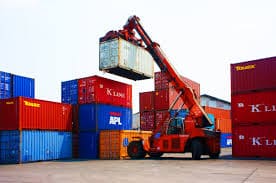The transport and logistics industry regularly uses container tracking tools and software that help them navigate the shipment route and make them reach the destination safely, without recurring expenses.
With the advancement in technologies, new container tracking software is sprouting up for better and efficient shipment tracking that uses GPS and RDIF for fast tracing and locating the exact locations of the shipment packages.
API has also led the logistics and supply chain industry and made it easier for several businesses to determine the location, accuracy, and estimated delivery time of dispatched containers.
What is API Tracking?
API (Application Programming Interface) tracking is an automated method of tracking intermodal container shipments between ports. Through this tracking tool, agents at the intermodal terminal or rail yard have the ability to track each container from the loading point to the unloading point to the warehouse it is stored in.
API tracking integrates shipment information into existing warehouse and inventory systems. This allows shippers and cargo owners to track the shipment as it moves through the supply chain.
API tracking provides real-time status updates, including container number, container ID, yard and destination, and load and unload information. This helps shippers identify which containers are in transit, which containers have been loaded and unloaded, and which containers are currently being stored.
API tracking can help shippers decrease total supply chain costs, provide real-time visibility of container locations throughout the supply chain, improve customer service, and increase customer satisfaction.
How Intermodal Container Tracking Works?
Intermodal containers are shipping containers that can carry cargo from a variety of modes, including ships, trains, trucks, and aircraft. The containers are built to a common size and can use the same roads and rail tracks to transport them.
In the early days of tracking, the technology involved using handheld scanners to scan bar codes on containers. In modern systems, advanced technology like GPS and RFID is used to keep track of containers as they move from port to port.
Benefits of API Container Tracking
The world of intermodal container tracking has seen a big push in recent years toward using software systems to support intermodal container tracking. Here are the key benefits of using API container tracking in logistical operations:
Real-Time Shipment Tracking
The most visible benefit of container tracking software is that it can help a carrier keep track of shipments. By allowing carriers to track their shipments in real-time, API container tracking software allows carriers to see what's being shipped, where it's being shipped, and when it's expected to be delivered.
Avoid Theft
In some cases, container tracking software also allows carriers to track cargo in real-time. This is particularly important for high-value cargo, such as electronics, which are vulnerable to theft or tampering. It also allows carriers to keep track of their cargo at all times so they can insure it and properly account for it.
API tracking can also give carriers better insight into their fleet. For example, it can help them track their container fleet and locate containers that have gone missing or been stolen in transit.
Efficient Fleet Management
Another way intermodal container tracking software can help carriers is by allowing them to manage their fleet better. For example, container tracking software can help carriers find optimal routes for containers so that they can save on fuel consumption and expenses. The software can also help carriers load and unload containers, and they can even track the hours their drivers spend on the road.
Conclusion
In a nutshell, API tracking software has changed the way businesses and logistics operate nowadays and provided fast and efficient ways to manage fleet and cargo safely.






